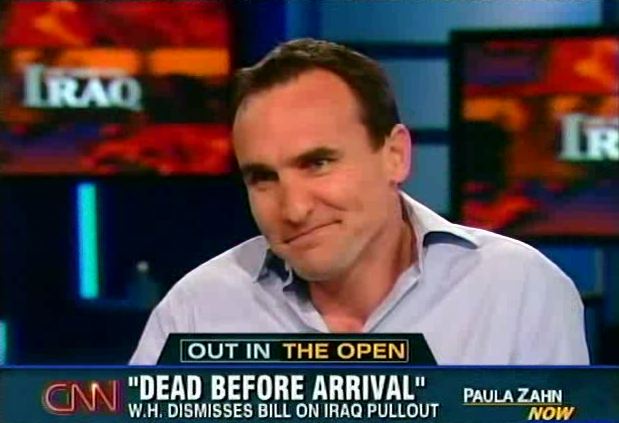PZN: "...provide security. Only then -- maybe -- you will have democracy."

Click photo to play
Length: 3:18
PAULA ZAHN: Let's talk a little bit more about the opponents of pulling out of Iraq. They say it would be an absolute disaster on the ground.
Just a short while ago, I spoke about that with our Baghdad correspondent, Michael Ware.
(BEGIN VIDEOTAPE)
ZAHN: Great to have you in town. Welcome.
MICHAEL WARE, CNN CORRESPONDENT: Thanks, Paula.
ZAHN: So, you know, Senator John McCain is outraged by this Iraq war spending bill. And here is what he had to say about it a little bit earlier today.
(BEGIN VIDEO CLIP)
SEN. JOHN MCCAIN (R-AZ), PRESIDENTIAL CANDIDATE: I understand the consequences of failure if we have to withdraw from Iraq, and I think it's chaos, genocide, and they will follow us home.
(END VIDEO CLIP)
ZAHN: So, what do you think would happen if the U.S. pulled out of Iraq?
WARE: Well, Senator McCain actually is pretty much right. And his assessment accords with the military commanders on the ground.
What you would see is untold bloodshed, most likely creating a recipe for impending regional conflict. You would see a consolidation of Iranian influence. It would be absolute disaster.
ZAHN: Take a look at some of the latest polling, which shows American attitudes toward this war.
In a recent poll, when asked who was winning the war in Iraq, only 21 percent think the U.S. is winning. A majority, 63 percent, thought neither Americans, nor insurgents, were winning.
Can the United States win?
WARE: The way it's going, no. I mean, the seeds for the current disaster were sown way back in 2003. The American public must now be prepared for some very ugly decisions. They need to confront a certain reality.
ZAHN: And that would be a lot more killing of civilians and a lot more loss of American life?
WARE: Well, the foremost thing that the generals talk about is an ongoing presence of U.S. troops. That's the first and foremost. It is beyond imagination that you can start pulling them home any time soon.
ZAHN: And, in a statement yesterday, this is how the White House described the spending bill: "disappointing legislation that insists on a surrender date, handcuffs our generals, and contains billions of dollars in spending unrelated to the war."
The president currently committed to at least 20,000 troops in this surge. What happens if those numbers aren't met?
WARE: Well, it's going to be difficult to maintain what's going on now.
And, even what's happening now, the U.S. mission is barely keeping its head above water. Indeed, it's not. I mean, it's difficult to see where the mission is gaining traction. We're now hearing top military commanders saying that security is the paramount issue. That's the core of the U.S. military mission in Iraq.
And, indeed, to secure that, they're now saying, for the first time ever publicly, that they're willing to entertain the notion of a non-democratic solution.
ZAHN: What would that be, a dictatorship?
WARE: They're talking about a situation that could have many manifestations or many different faces.
But the ones that the generals point to are those we see in the Middle East. The bottom line for them is: provide security. Only then -- maybe -- you will have democracy.
ZAHN: Michael Ware, hate to end it on that note. So, we will be discussing this a lot with you in the days to come.
WARE: Thanks, Paula.
ZAHN: Appreciate it.
